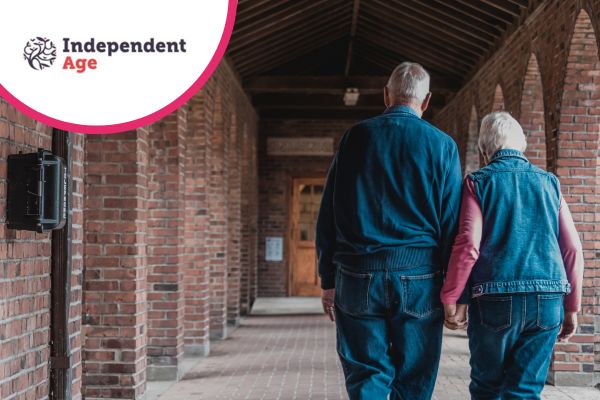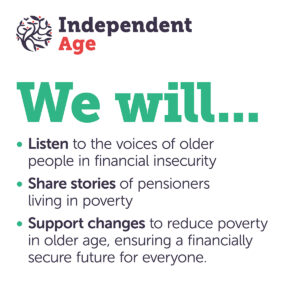
Independent Age
This help and advice was first publishing on the Indepenent Age website and the original articles can be read in full by clicking on this box.
Getting out and about is important for our wellbeing but it can become more challenging as we get older. You can get advice about aids to help you stay mobile, as well as special transport schemes and help with shopping. If you drive, you may be eligible for a Blue Badge to help with parking.
Help for drivers
Driving can help you to stay independent, especially in areas where there is poor public transport. But as you get older, you may lose confidence or have a health condition that affects your ability to drive. Age UK have a range of information on their website about Driving as you get older.
If you have problems with walking or other health conditions that affect your mobility, you may be able to get a Blue Badge to help you park closer to the places you want to go.
Mobility Equipment
If you think you might benefit from some equipment to help you use your home safely, contact your local council to ask for a care needs assessment. You’ll be able to get advice on the types of equipment, as well as adaptations you might need to make to your home, such as widening doorways. Our webpage Getting disability equipment has more information about what to consider and where to start.
Mobility scooters and powered wheelchairs
Before you buy or hire a mobility scooter or electric wheelchair, it’s a good idea to get an assessment from a physiotherapist or an occupational therapist. Contact your GP for advice.
There are many different types of scooter and powered wheelchair, so you’ll need to do some research. A good starting place is the Research Institute for Disabled Consumers, an independent consumer research organisation for older and disabled people. The Disabled Living Foundation can also give advice and has a series of factsheets to help you choose mobility equipment. If you live in Scotland, Disability Information Scotland has helpful information about mobility equipment and travel.
Manual wheelchairs and walking aids
You may feel more confident about getting out and about if you use walking aids, such as a walking frame, crutches or sticks, or a manual wheelchair.
In England and Wales, NHS Wheelchair Services can assess you for a wheelchair. Ask your GP, or an occupational therapist or physiotherapist, to refer you for an assessment with NHS Wheelchair Services. You may also be able to borrow equipment from the NHS (you may have to pay a deposit). Ask a GP or physiotherapist for more information about borrowing equipment.
If you live in Scotland and you have difficulty walking, your GP or a community nurse or physiotherapist may be able to arrange for you to access a wheelchair or a walking frame or sticks.
You may also be able to hire or borrow a wheelchair from the British Red Cross for a small fee if you only need to use it for a short time. Use the postcode search to find a mobility aids service near you.
You can get more advice about manual wheelchairs and walking aids from the Disabled Living Foundation.
Help with shopping
ShopMobility lends scooters, wheelchairs and other aids to people who are less mobile, so they can shop and visit leisure facilities in their local area. Some schemes offer escorts for people with sight loss. Staff at the scheme will assess you to find equipment that you’re comfortable with, and give you training and safety information. There may be a small charge for the service.
The scheme varies depending on where you live. Find a ShopMobility centre in your area.
If you just need someone to go shopping with you, and you live in England, you may be able to find an escorted shopping service through your local Age UK. There may be a charge for this.






